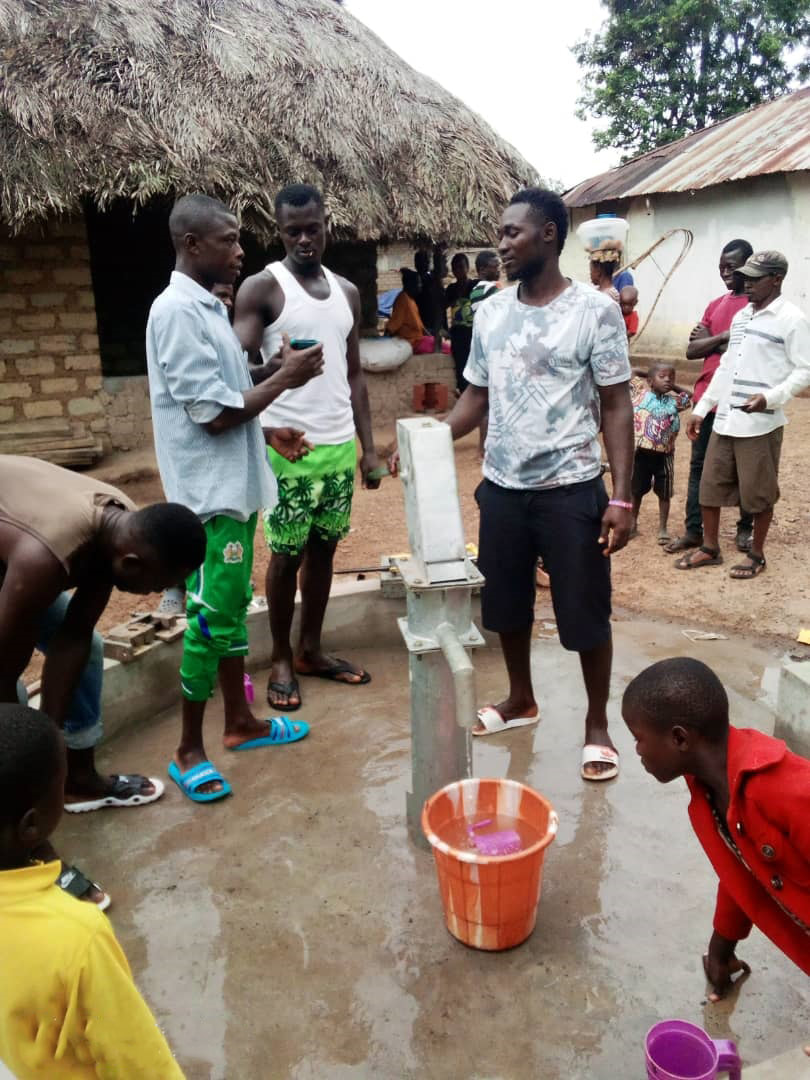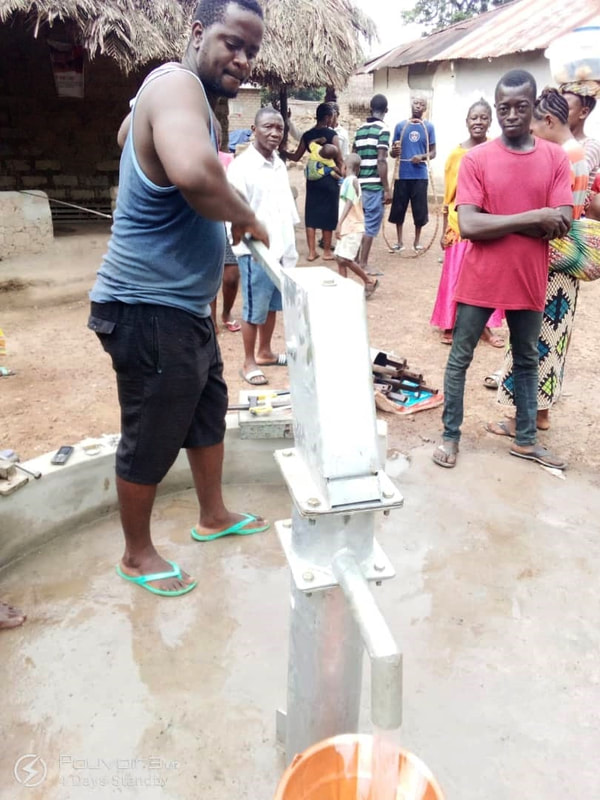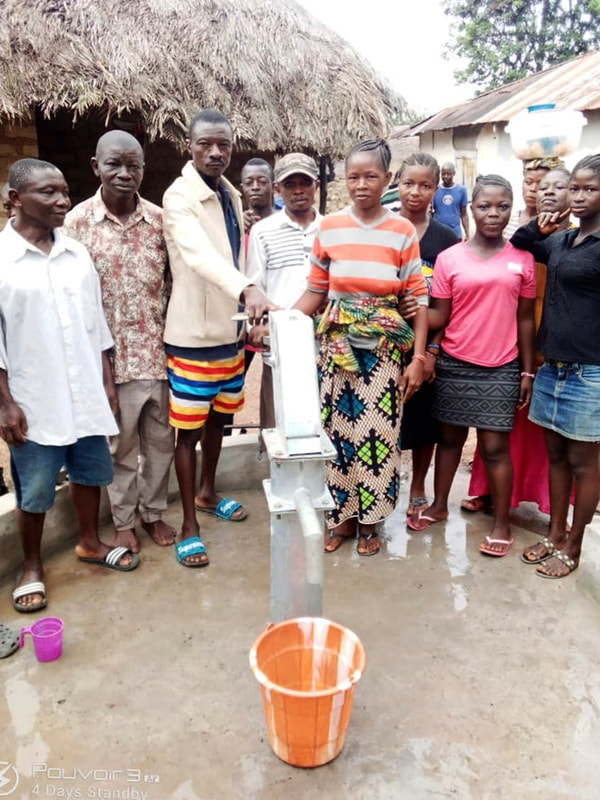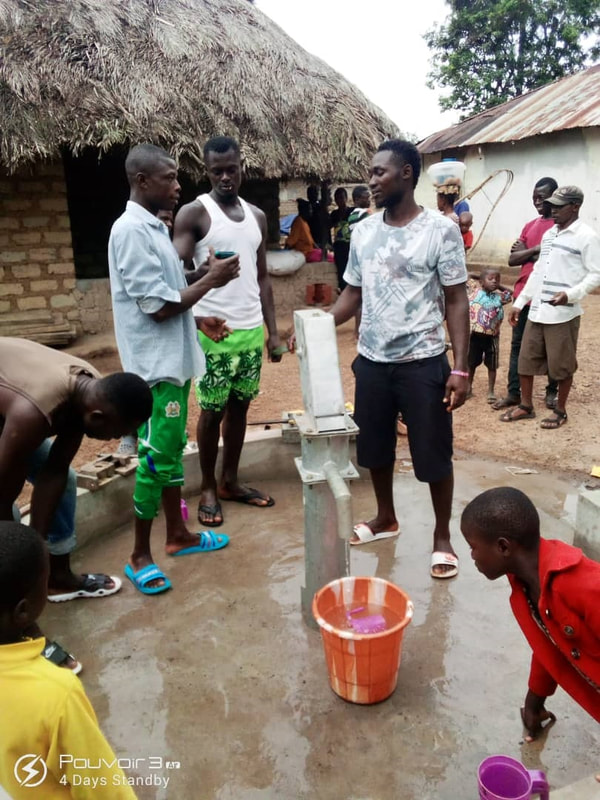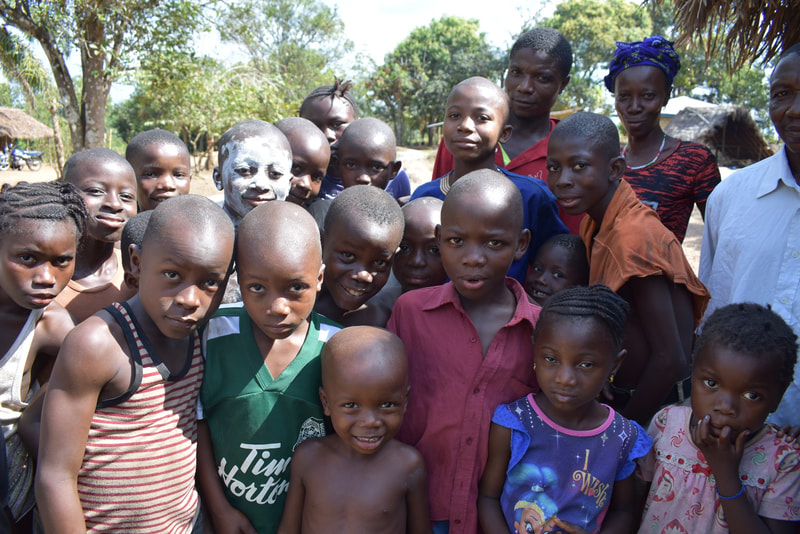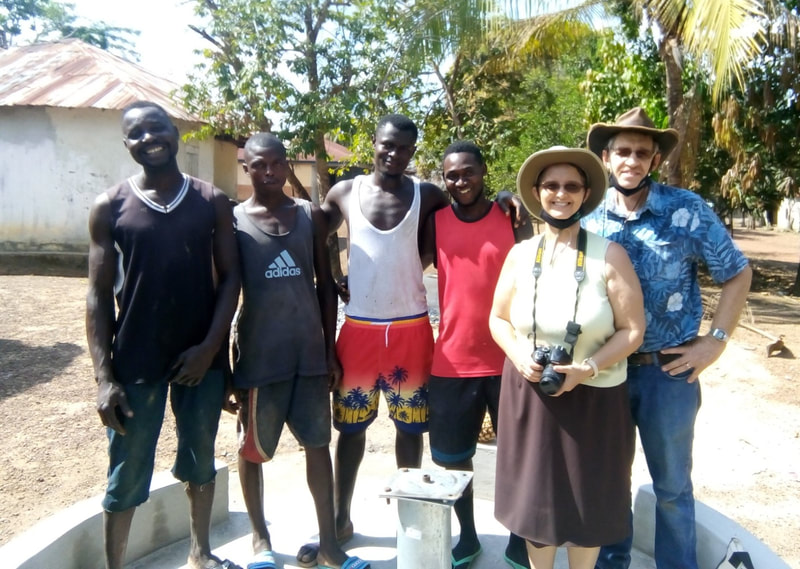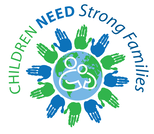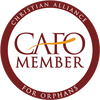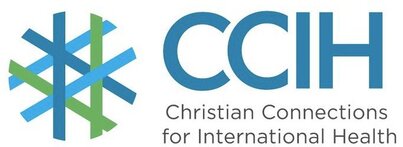|
Two years ago, HCW Partner Church Ebenezer UMC committed to partner with Fengehun village to provide desperately needed clean water and sanitation solutions to the community. Initially delayed by country-wide COVID restrictions, the projects are now well under way in the capable hands of Elmer and Joann Reifel, missioners with Christians in Action Missions International who are based in Bo, Sierra Leone.
A major part of the Reifels’ work in Sierra Leone is providing clean water to communities in need via hand-drilled boreholes. Elmer is also an ordained minister who serves as CinA’s Africa Area Director. The Reifels use every opportunity to share the Gospel whenever possible. The Reifels’ work with Helping Children Worldwide began in 2018 when former HCW Field Director Kim Nabieu engaged them to drill wells in two small villages, funded by contributions made to HCW on behalf of a retiring Methodist minister. With the launch of the Village Partnership initiative, HCW asked the Reifels to submit a bid for wells and latrines that were needed in Fengehun, a village served by Mercy Hospital’s mobile outreach team. During a 2019 mission trip to Sierra Leone, Ebenezer UMC Pastor Rob Lough and Missions Director Tina DeBoeser met with Fengehun leadership and committed to a partnership between their church and the village. The projects were supposed to be completed in 2020, but COVID closures delayed the start until February of this year. The Reifels have completed the new fresh water well and have finished refurbishing the two older wells. They also began work on a new three-stall latrine. After the Fengehun projects are complete, they will begin similar projects in Lemblema, the site of another Village Partnership project. "We are pleased to let you know that the new well, the first on our list of to-do's in Fengehun, is complete and fully operational," Joann Reifel reported. "The pump base was installed in the new concrete base last week and given about four days to cure before installing the rest of the pump and shocking the water to purify it for drinking. A yield test allows us to gauge whether or not there is enough water coming into the hole to use a pump, and we do that before we commit to installing a pump. The yield of this well is a terrific 10.8 gallons per minute, so it should be able to keep up to the demand. " "The method we use for the drilling of the borehole is a manual drilling process using a variety of augers, cutters, rock breakers and tips depending on local geology," Joann explained. “The new pump parts were installed in the original standpipe and the water source is protected now from the parts of the well that were collapsing in on it and causing the mud to build up over the years." The new pipes also go further down than the old ones, allowing the villagers to pump water even during the dry season. The new and renovated wells should supply Fengehun village with clean, fresh water for many years to come. When the new latrines are completed, the village will be a healthier and more hospitable place for the residents.
0 Comments
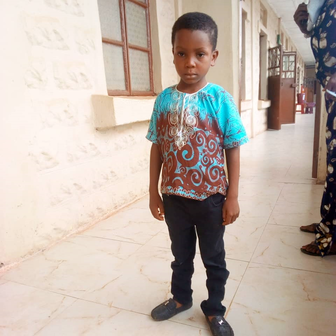 Mercy Hospital outreach team was on a visit to Bevehun village when they encountered 6 year old John suffering from severe inguinal hernia. John was transmitted to the hospital and admitted as a "destitute" (his parents were not able to pay for his treatment.) The surgical staff assessed the child and scheduled surgery to repair the hernia, which was successful. Inguinal hernia is a serious condition affecting all age groups in Sierra Leone. Activities that increase intra-abdominal pressure can cause a portion of the intestine to protrude through weakness in the abdominal wall. Heavy lifting, diarrhea, constipation, or persistent cough can all cause protrusion. Children in poor families may be especially vulnerable to hernias, as they may be carrying heavy water buckets or otherwise engaged in labor, and endemic diseases like typhoid and malaria create conditions that can lead to herniation. Left untreated, inguinal hernia can cause severe and even permanent damage to the intestines. John's father Augustine was deeply appreciative that his child was successfully treated at no cost. John made a full recovery and was happily reunited with his family. 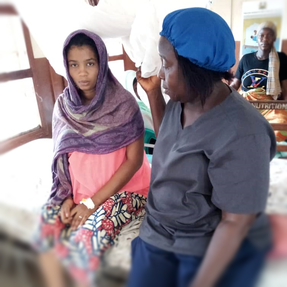 Salamatu, aged 24 and in late term pregnancy, came to the hospital with a high fever. She was examined by the midwife on duty and admitted. She was diagnosed with a severe malaria infection and given drug treatment. Much improved, Salamatu was discharged to await the onset of labor, with the encouragement to always sleep under a treated mosquito net. "I'm pleased with the care I received and glad I entrusted myself to Mercy," Salamatu said. Malaria is endemic in Sierra Leone and is one of the leading causes of maternal death. Children under five are also highly susceptible to infection, illness and death from malaria. The disease contributes to close to twenty percent of child mortality. Malaria is caused by five species of single-cell parasites that are transmitted by the bite of female Anopheles mosquitoes. 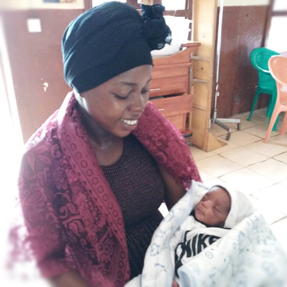 Sia was very late in her pregnancy when she came to the hospital with slight bleeding. An ultrasound scan revealed placenta previa (placenta covering the opening of the cervix) necessitating an emergency caesarian section. Sia's healthy baby boy was quickly delivered and she received a unit of blood. Mother and baby were fine at discharge. "Thank you for saving both of our lives, especially my precious baby," Sia told the Mercy surgical team. Placenta previa is not that common in Sierra Leone, and the cause is not well known, but contributing factors can include maternal age over 35, more than four pregnancies, or a history of uterine surgery. Surgery was necessary to save both the life of Sia and her baby. 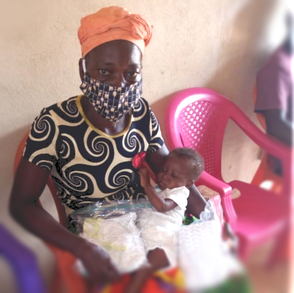 On outreach to Mahuama village, the Mercy team encountered Apea, a severely malnourished infant whose mother had died in labor. Having no money to provide for the child, the caregiver brought tiny Apea to the community health post where the CHO Ishmael diagnosed the child with malaria and malnutrition. Apea was treated for malaria and enrolled in Mercy's nutrition program. Matron Augusta gave the caregiver baby clothes, diapers and blankets, and instructed her how to feed the baby "pikin mix," Mercy's prescribed nutritional supplementation, similar to Plumpy'nut. The caregiver was given a supply of pikin mix to feed the baby and a return date for the nutrition clinic. Sierra Leone has one of the highest rates of child malnutrition, caused primarily by extreme poverty. Fighting early childhood malnutrition is one of Mercy Hospital's primary missions, graduating approximately 25 now-healthy infants and toddlers from the program each month. |
Follow us on social media
Archive
July 2024
Click the button to read heartfelt tributes to a beloved Bishop, co- founder of our mission!
Post
|
Helping Children Worldwide is a 501 (c) 3 nonprofit organization | 703-793-9521 | [email protected]
©2017 - 2021 Helping Children Worldwide
All donations in the United States are tax-deductible in full or part. | Donor and Privacy Policy
©2017 - 2021 Helping Children Worldwide
All donations in the United States are tax-deductible in full or part. | Donor and Privacy Policy

